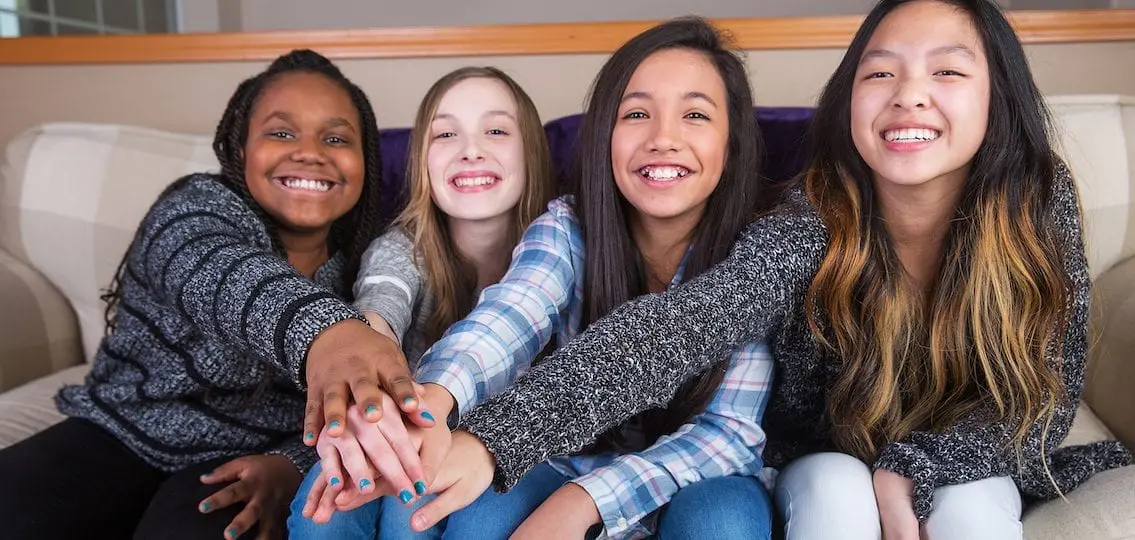No one likes to feel confused, but that’s exactly what pre-adolescence aka tweendom is all about. Remember that awkward state in your own life when your body, your friendships, and even your environment changed?
One day, everything makes sense; the next you’re not sure who you are or how to act. No wonder girls between the ages of nine and thirteen have mood swings. They want to assert their independence, but at the same time, they’re not quite ready.
Ramita Anand, founder of Elevate, an educational mentoring service for pre-adolescent girls, knows all too well about this stage. This former teacher and mother has seen firsthand how girls lose their confidence and sense of security during these years. She reflects, “If they’re not guided and mentored and lifted in a way, it doesn’t matter how bright they are. Self-doubt creeps in and they lose their way.” She’s made it her mission to empower tween girls.
Anand is dedicated to championing and encouraging these girls so they develop the super powers that will lift them up and empower them live their best lives.
Empowering Young Girls: Five Super Powers of a Super Girl
1. Confidence
Having confidence requires that girls embrace a growth mindset. To cultivate this belief, Anand spends a lot of time talking about the brain with the girls she works with. She explains how this organ can grow and expand, and that you can actually teach yourself. That’s why the language we use is so important. For example, girls may need help to make the pivot from “I’m not good at math” to “I’m not good at math yet.” Anand works to explain that “anything we do – anything we want to change, requires a bit of practice and commitment, and as long as you’re willing to make the effort and put in the practice, then everything will come.”
Parents can empower their tween girls by modeling their own growth. Maybe you’re a good runner now, but you weren’t when you were younger. Be sure to share your failures and the hard work you put in to get to the point where you became successful.
| [adrotate banner=”203″] |
It’s also helpful to break down growth into small, realistic steps. As an example, if you want to take up a new sport, first you practice, then you try out for the team, then you play on the B team where you work hard and improve.
2. Emotional intelligence
According to Anand, “Most girls are not actively taught the social-emotional language to be self-aware or the ability to express their emotions.” She works to help girls understand their emotions so they can both communicate and regulate their emotions.
3. Resilience
It is a fact of life that you’re going to have challenges. That’s why Anand wants girls to learn that falling is okay, but you want to have a plan for how you’re going to get up. For example, let’s say the weather ruins your plan for an outdoor picnic. This setback presents a great opportunity to come up with a Plan B. Your plans may have to change, but you’ll still get something out of it. As Anand says, if tween girls know that “disappointment won’t break us,” they will be empowered to be persistent and to see obstacles as opportunities.
4. Empathy
So many leaders and top level managers are looking for someone with empathy, the ability to put yourself in other people’s shoes. Parents can teach this to their children by giving people an opportunity to speak and share what they’re thinking so they can learn from others. When you travel or have a relationship with someone who is different from you, this exchange happens. But it can also happen in the day to day when you are watching the news or when reading books. In these situations, parents can ask questions like How do you think that person felt when they were going through that experience?

5. Kindness
There is a real difference between being nice and being kind. Manners and being polite are important, of course. Kindness stems from not looking for some external validation. You do it inherently. Anand wants girls to understand that it’s not good enough that you want your teachers to see you being good. The goal is to be kind when no one is looking and it doesn’t matter who can see your acts of kindness. These are the things that make the world a better place.




